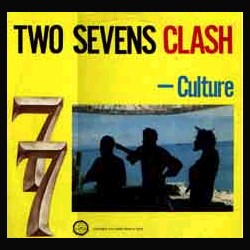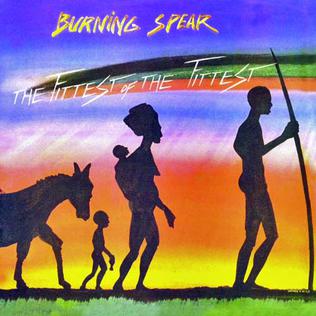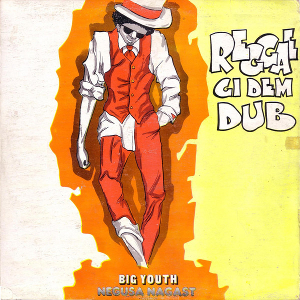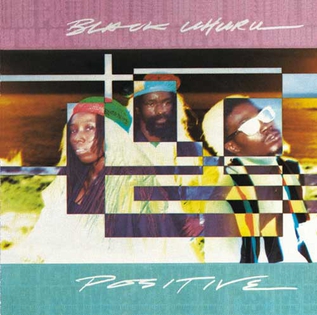
Liberation is an album by the Jamaican musician Bunny Wailer, released in 1989 through Shanachie Records. Wailer supported the album with a North American tour. It was nominated for a Grammy Award, in the "Best Reggae Recording" category.
Errol Thompson, better known as "ET", was a Jamaican record producer, audio engineer, and one of the first studio engineers to be involved in dub music.

Marcus Garvey is the third album by reggae artist Burning Spear, released in 1975 on Fox Records in Jamaica and then internationally on Island Records later in the year. The album is named after the Jamaican National Hero and Rastafari movement prophet Marcus Garvey. A dub version of it was released four months later as Garvey's Ghost.

Long Life is a reggae album by Prince Far I, released in 1978 through Front Line. "Black Starliner Must Come" is about Marcus Garvey's Black Star Line.

Free from Sin is a 1979 reggae album by Prince Far I. It was produced by Prince Far I and engineered by Sylvan Morris & Errol Brown.

Rock Steady with Flo & Eddie, also known as Prince Flo & Jah Edward I, is the fifth studio album by Flo & Eddie. Released in 1981, the album consists of rocksteady and reggae music. The album was recorded at Tuff Gong Studios in Kingston, Jamaica under the production of Errol Brown, frontman for the British soul band Hot Chocolate.

Two Sevens Clash is the debut album by roots reggae band Culture, recorded with producer Joe Gibbs at his own Joe Gibbs Recording Studio in Kingston in 1976, and released on Gibbs' eponymous label in 1977. The album's title is a reference to the date of 7 July 1977.

Dry & Heavy is the fifth studio album of the reggae artist Burning Spear, released in 1977 as the third Island album.

Hail H.I.M. is a studio album by the Jamaican musician Burning Spear, released in 1980. He supported the album with a North American tour.

The Fittest of the Fittest is an album by the reggae musician Burning Spear, released in 1983.

Farover is an album by the Jamaican reggae singer and musician Burning Spear, released in 1982.

Baldhead Bridge is the second album by the Jamaican roots reggae band Culture, released on Joe Gibbs Records in 1978.

Earl "Chinna" Smith, a.k.a. Earl Flute and Melchezidek the High Priest, is a Jamaican guitarist active since the late 1960s. He is most well known for his work with the Soul Syndicate band and as guitarist for Bob Marley & the Wailers, among others, and has recorded with many reggae artists, appearing on more than 500 albums.

Dread Locks Dread is an album by the Jamaican deejay Big Youth, released in 1975.

Reggae gi dem Dub is a studio album by Jamaican reggae artist Big Youth. It was recorded at the Harry J studio in Kingston, Jamaica.

A Luta Continua is a studio album by the Jamaican musician Big Youth, released in 1985. The title track is about the fight to end apartheid. Jonathan Demme was inspired to use the phrase in the credits of his movies Something Wild and Married to the Mob.

Natty Universal Dread 1973–1979 is a 3-CD-Box-set by Big Youth, released in 2001.

Right Time is the 1976 studio album debut of influential reggae band the Mighty Diamonds. The album, released by Virgin Records after they signed the Mighty Diamonds following a search for talent in Jamaica, is critically regarded as a reggae classic, a landmark in the roots reggae subgenre. Several of the album's socially conscious songs were hits in the band's native Jamaica, with a few becoming successful in the UK underground. Influential and sometimes unconventional, the album helped secure the success of recording studio Channel One Studios, and rhythm team Sly Dunbar and Robbie Shakespeare.

Black Roots is a 1979 album by Sugar Minott. It was the first to appear on Minott's Black Roots label, and was described in the book Reggae: 100 Essential CDs – The Rough Guide as a "classic, which catches the singer on the cusp of the roots and dancehall phases, and with total control over his music." The album includes contributions from some of Jamaica's top session musicians including Leroy "Horsemouth" Wallace, Noel "Scully" Simms, Eric "Bingy Bunny" Lamont, Gladstone Anderson, Larry 'Professor Bassie' Silvera and Ansell Collins, with harmony vocals provided by Don Carlos, Lacksley Castell and Ashanti Waugh. Two of the tracks on the album had previously been issued as singles – "Hard Time Pressure" and "River Jordan". The album was described by Dave Thompson in his book Reggae & Caribbean Music as a "deeply dread collection...time has bestowed a stately uniqueness to it". Alex Henderson, writing for AllMusic, said of the album: "If you combined Stax's raw production style with the type of sweetness that characterized a lot of Chicago, Detroit and Philadelphia soul and added a reggae beat, the outcome might sound something like Black Roots."

Positive is a studio album by the Jamaican reggae group Black Uhuru, released in 1987. A dub album, Positive Dub, was released the same year. Positive was the final album with vocalist Delroy "Junior" Reid.


















